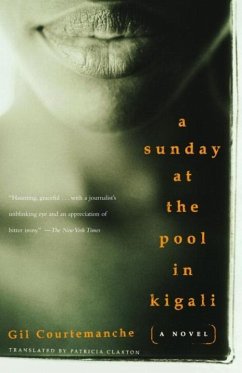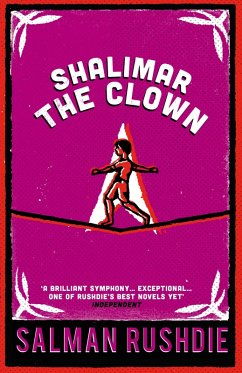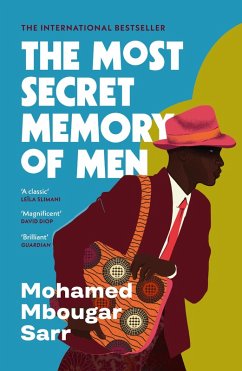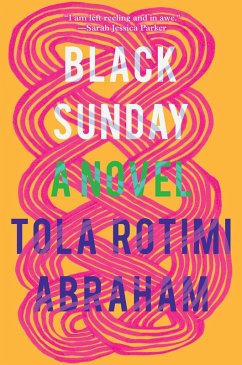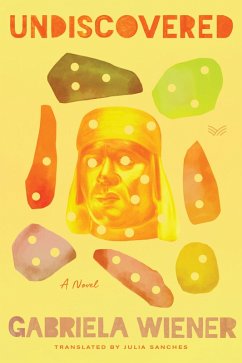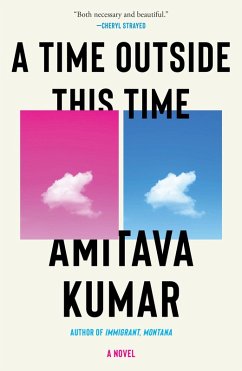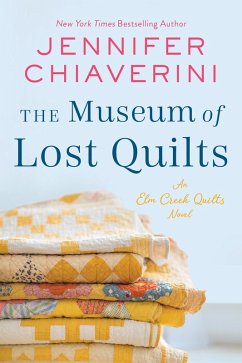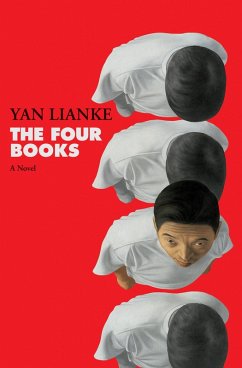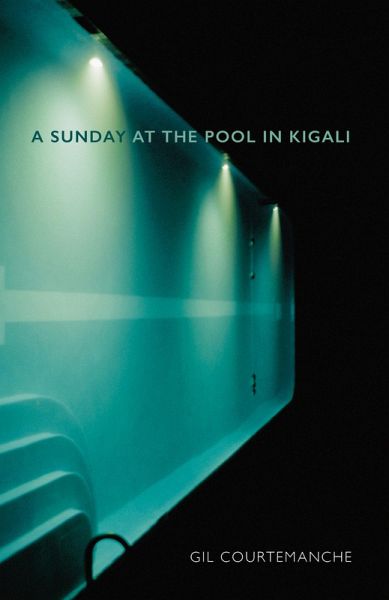
A Sunday at the Pool in Kigali (eBook, ePUB)
Versandkostenfrei!
Sofort per Download lieferbar
10,95 €
inkl. MwSt.
Weitere Ausgaben:

PAYBACK Punkte
5 °P sammeln!
Look, for people who're going to be dead soon, we're not doing too badly. The novel of the year is what La Presse called this extraordinary book, a love story that takes place in the days leading up to the 1994 genocide in Rwanda. A first work of fiction by one of French Canada's most admired journalists, Gil Courtemanche, it was first published in Quebec in 2000, spent more than a year on bestseller lists and won the Prix des Libraires, the booksellers' award for outstanding book of the year. Rights were sold to publishers in over twenty countries in Europe and around the world. This humanist...
Look, for people who're going to be dead soon, we're not doing too badly. The novel of the year is what La Presse called this extraordinary book, a love story that takes place in the days leading up to the 1994 genocide in Rwanda. A first work of fiction by one of French Canada's most admired journalists, Gil Courtemanche, it was first published in Quebec in 2000, spent more than a year on bestseller lists and won the Prix des Libraires, the booksellers' award for outstanding book of the year. Rights were sold to publishers in over twenty countries in Europe and around the world. This humanist story of an unlikely love affair set against a holocaust has become an internationally acclaimed phenomenon, worthy of comparison with the work of Graham Greene and Albert Camus. The swimming pool of the Mille-Collines hotel, Kigali, in the early 1990s, draws a regular crowd of assorted aid workers, strutting Rwandan officials, Belgian businessmen, French paratroops and Canadian expats. Among them is Bernard Valcourt, a documentary filmmaker from Quebec, on a mission to set up a television station in the capital. Valcourt, who for two decades has earned his living from wars and famines, lingers around the pool drinking warm beer and watching football; but most of all, watching Gentille, a beautiful young waitress, who is a Hutu but often mistaken for a Tutsi because of her family's strange history. The trouble coming stems from a long conflict, instigated in colonial times by Whites who treated Tutsis as superior to Hutus. The Hutu government is now openly encouraging violence against Tutsis. The physical traits of the Tutsis make them easy prey, but they are not the only ones in danger. Too many people are already dying in Rwanda daily: of AIDS, of malaria, and increasingly at roadblocks at the hands of drunken militia, or pulled from their homes. The hotel staff and prostitutes sense trouble and death drawing closer as they continue providing drinks and meals and sex. The story of this developing catastrophe is revealed through the lives of a handful of Rwandans who befriend Valcourt. They confide in him because he listens, and because his interviews offer them a chance to try to change the way things are by telling the world. Their candour and warmth begin to make his heart glow. He meets people like Méthode, who knows a bloodbath is brewing and would rather die of AIDS in the comfort of a hotel room than by a machete. Threatened, frightened, sick, they don't want to talk and act like they're dying. Poor as they are, they want to have some moments of pleasure and celebrate life. As Kigali life continues in its resourcefulness and persistence, Valcourt is falling in love with Rwanda, and with Gentille, who loves him because he sees her as no-one has seen her before. Even as the worst horrors begin, as friends are raped and murdered, he starts to feel a strange peace in this land of a thousand hills, though he repudiates the outside world for its failure to intervene. Because Gentille is thought to be Tutsi, her life is in danger. Still, no-one can believe that the extremists will go too far, that brothers and sisters will kill brothers and sisters, and that 800,000 civilians will be massacred. A hard-hitting chronicle of an overlooked chapter of recent history, told with skill and compassion, A Sunday at the Pool in Kigali is also a celebration of living in the moment, of the integrity of friendship and the courage of everyday heroes. Harrowing, unsettling, challenging, but beautiful and moving, it is a book that cannot leave the reader untouched; as a Quill & Quire reviewer said, it is full of real people that demand to be remembered.
Dieser Download kann aus rechtlichen Gründen nur mit Rechnungsadresse in A, B, BG, CZ, D, DK, EW, E, FIN, F, GR, HR, H, I, LT, L, LR, NL, PL, P, R, S, SLO, SK ausgeliefert werden.




